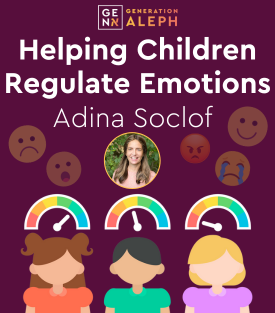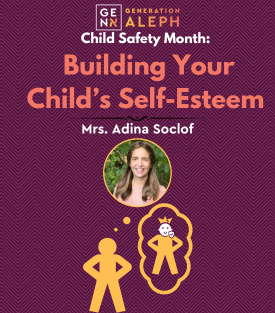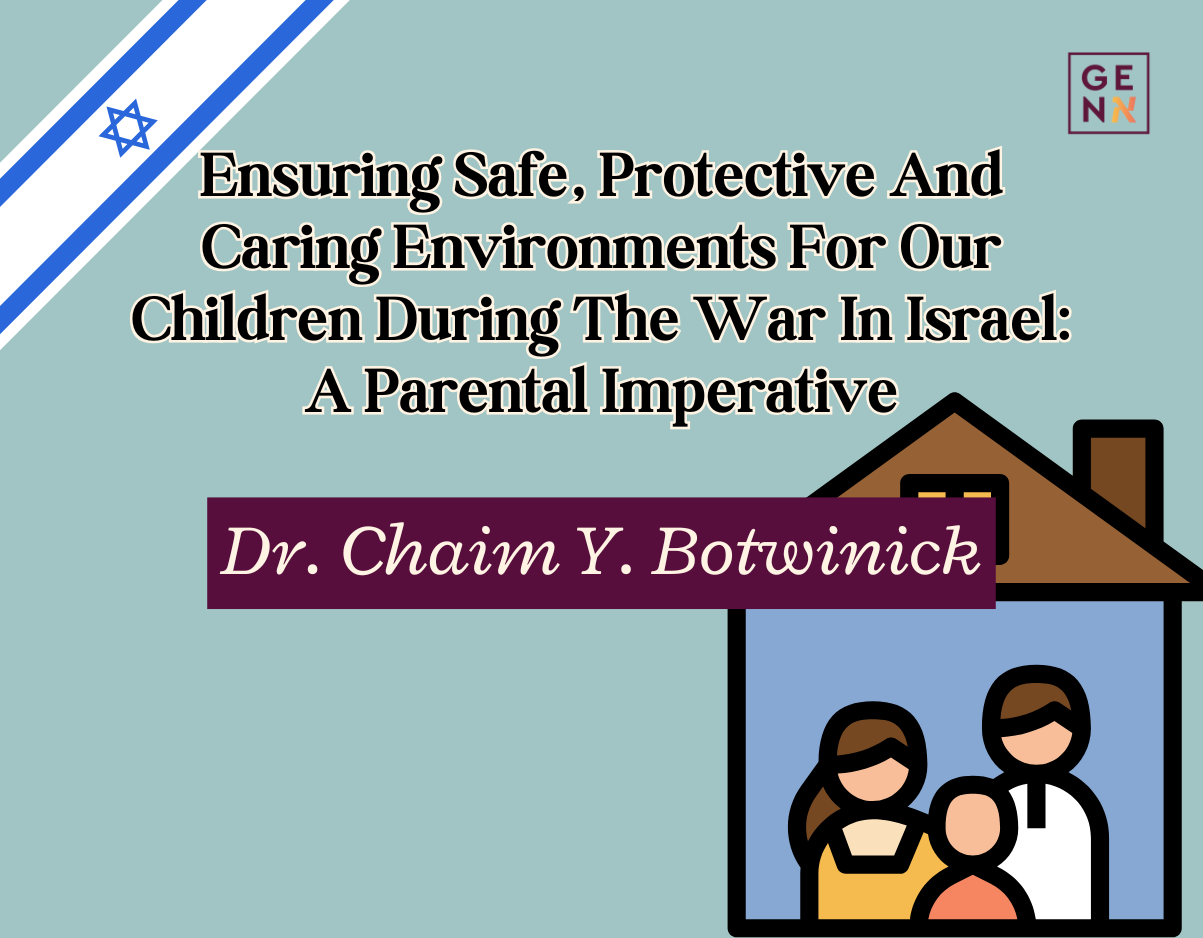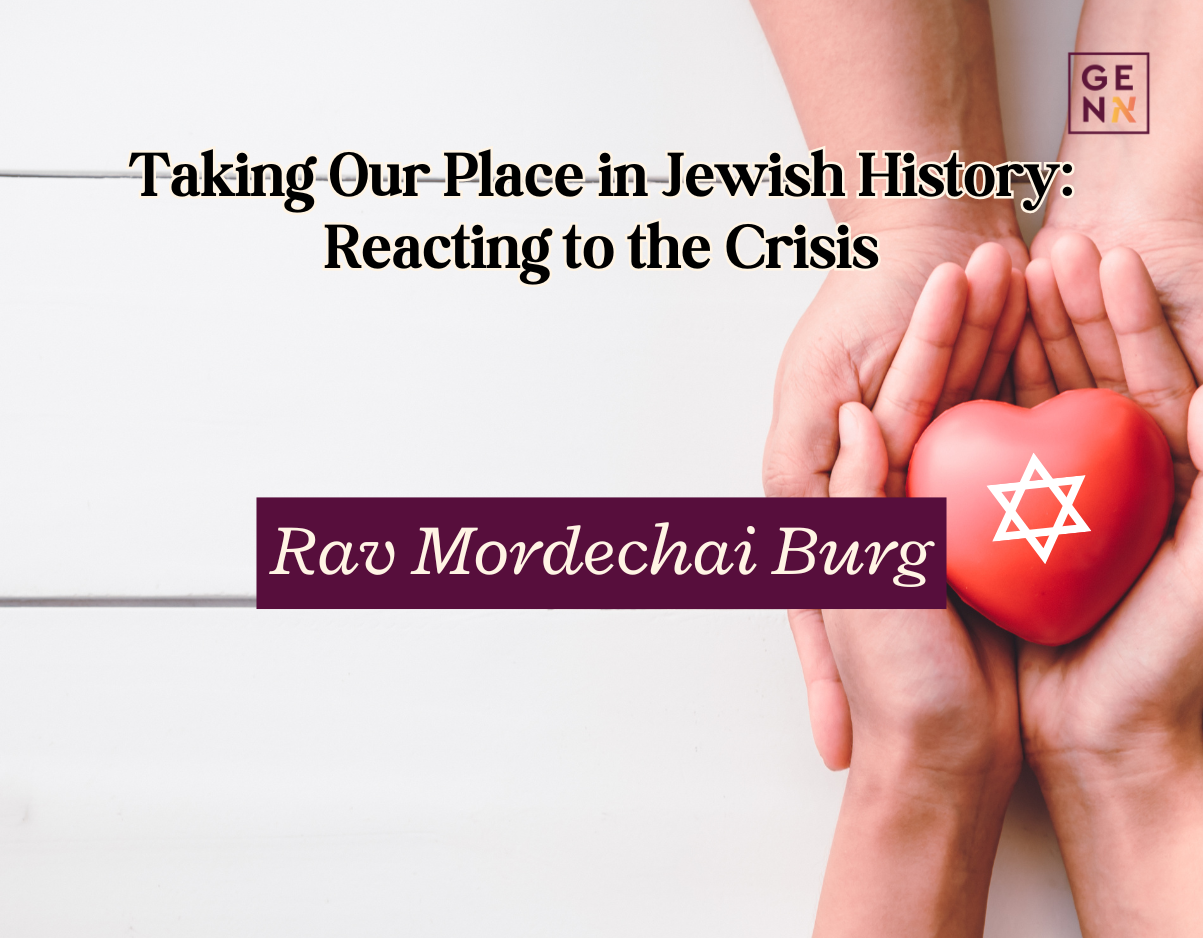Driving home from Yerushalayim on Motzai Simchas Torah, my normally reserved six year old son was suddenly very talkative. Having spent the day hearing the sirens overhead and staying within the safe confines of our Yeshiva, being in our car going home gave him the opportunity to speak his mind. My wife (a trained therapist) turned to me and said, this is what it looks like for a six year old boy to process. With my son in law and daughter in the car as well, we gave our six year old son the opportunity to ask any question and we answered him to the best of our ability. Even when we got home he was still asking questions. Eventually he went to bed. (Even as I write this article I was interrupted by a siren and forced to pause for a couple of minutes. We are certainly living in trying times.)
As parents, listening and responding to our children in these tragic and difficult times is the Avodas Hayom, the work of the day. Whether you live in Israel, and are more accustomed to dealing with these issues, or you live in Chutz La’aretz, we as parents have a responsibility to help our children understand and process what is going on. While this article will hopefully share some helpful strategies as to how we can aid our children throughout this process, it is by no means comprehensive. Both for ourselves and for our children, we each cope in our own unique ways. Acceptance is the word of the day. We must accept that how we cope is ok and it is ok for others to cope differently. Some children may choose to talk whereas others may choose to remain quiet. Some will get angry and others will be sad. All of these responses are understandable and creating a safe space for them to feel comfortable processing in their own way is paramount. This article is in no way meant to encourage children (or parents) to process in a specific way. Having said that, here are some specific tips as to how we can parent our children through these difficult times.
Communication
Though this may seem obvious, communication is key. Every parent is familiar with the phrase, “I heard from my friend….” Ideally we want our children to be hearing from us, the parents. In order to do this we have to foster an environment of communication. Proactively sharing information with our children gives them a sense of safety. They know that they are hearing from us the information that needs to be shared. It also gives us, the parents, the opportunity to contextualize the information. For example, “Yes there are rockets being shot into Israel and Baruch Hashem we have an iron dome system, a safe room with protocols, and a strong army. Most importantly, we can daven to Hashem in times when things are difficult.” A child who feels that his parents are hiding from him will not see his parents as an address for communication. Since our goal is to help our children process their feelings, it is of the utmost importance that we create an environment that invites our children to share with us.
When your children do choose to share with you their experience our responsibility as parents is to:
Actively listen
Empathize
Validate and normalize
Support
Active Listening
Active listening means paying careful attention to what your children are saying. Very often when people are talking we are already thinking in our head about what we are going to respond. Sometimes, people hear their child saying something and they understand it through the lens of their own experience. As a result, our children may be expressing something and we are literally not hearing them or interpreting what they are saying incorrectly. Active listening means that we suspend our own thoughts and judgments and listen only to what is being expressed. It can be helpful to repeat what you heard to your child and ask them, “Did I understand you correctly?” You may be surprised how often children will say, “No, that’s not exactly what I meant.” Sometimes it will be because we did not hear them correctly while other times it will be because the children themselves are still forming their own thoughts and opinions and when they hear it said back to them it does not resonate. Active listening gives our children the opportunity to truly be heard which gives them a strong sense of safety and belonging.
Empathy
Dr. Brene Brown writes that empathy is connecting with people so we know we’re not alone when we’re in struggle. It is far easier for us to manage when we know that we are not alone. Empathizing with our children means connecting with the emotions that they are experiencing. It does not necessarily require us to have the same emotion or experience but it does mean that we can see the experience from their perspective. It can also mean that you recognize in yourself the emotion that they are expressing from a different experience you may have had. Communicating to our children that we can hear the emotion that they are experiencing and be witness to their journey. We may not be able to help the situation that we are in but we can go through it together.
Validate and Normalize
Teaching our children that their experience is valid and normal is an important part of their processing experience. It does not mean that you agree with them or share their experience. It does mean that they are understandable and they do not have to feel a sense of shame for how they are experiencing what is happening. The last thing that we would want is for our children to feel rejected or judged for how they feel. Not only does validating our children give them a stronger sense of identity, it helps them manage their emotions more effectively. When our children share with us what they are feeling, it is advisable to gently probe with questions like, “what is it specifically that’s making you feel this way?” Once the child has shared with us their experience make sure to respond with validating statements like:
“I understand where you are coming from.”
“I can see how you would feel that way.”
“I am here for you.”
“That’s a totally understandable and normal response.”
Support
Finally, after we have listened, empathized, validated and normalized we can offer support to our children. First of all, we must recognize that support looks different for every child. Some kids will want to talk and others may want space. As parents we ought to stay curious and ask our children questions like, “What do you feel like you need in this situation?” If a child lets us know that they could use some space we can accommodate them by letting them know that we are here when and if they want to talk. For children who feel like they want to talk we can let them know that we will make time for them to the best of our ability.
The word courage comes from the Latin, Coeur meaning heart. Being courageous means sharing who you are with all of your heart. In these times we have the opportunity to teach our children to be courageous. Courage does not mean the absence of fear, it means showing up as your whole self even while you are afraid. Inviting our children to be their whole self in this time is a gift that will stay with them for the rest of their lives.
Rav Mordechai Burg is the Menahel of Mevaseret, Mashpia of NCSY Summer, Mashpia of Nitzotzos, author of Nitzotzos on Chumash and a senior Rebbe at Tomer Devorah and Bnot Torah Institute. His shiurim can be found on Nitzotzos.com.
Submit your questions
"*" indicates required fields











